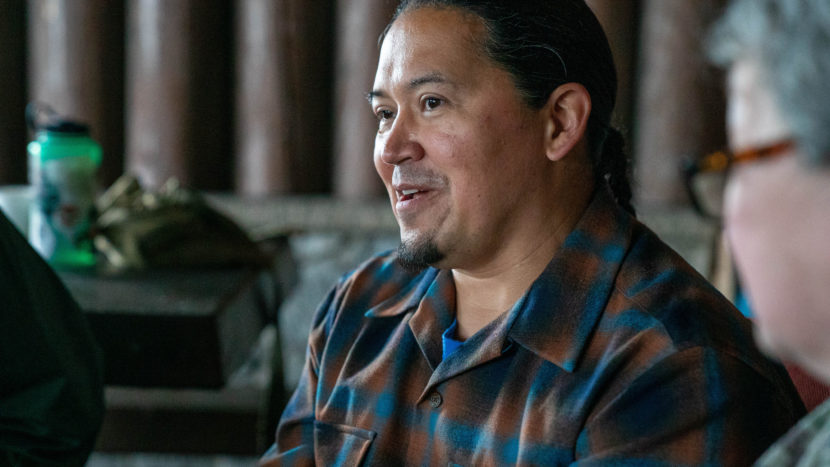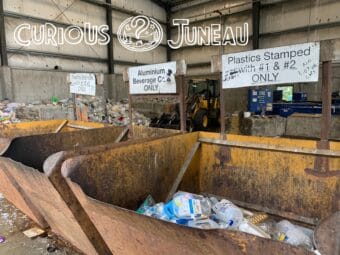
X̱ʼunei Lance Twitchell teaches Alaska Native languages at the University of Alaska Southeast. He started listening to podcasts years ago — long before he ever considered creating one of his own.
“And then I started to think, ‘Well, where are the Indigenous voices?’” he said.
He says he found podcasts about almost everything, from true crime to decolonization and anti-racism. But he says he didn’t hear anything about his life’s work: language revitalization.
Twitchell’s name is practically synonymous with a growing Indigenous language movement in Southeast Alaska. He teaches students that Indigenous language is fundamentally connected to culture and identity — things that colonization has tried to extinguish.
He’s taught all over the region. He’s writing Lingít language textbooks and a dictionary. And he’s been pushing the state to incorporate Indigenous languages into curriculum and daily life as a member of the Alaska Native Language Preservation & Advisory Council.
Now he’s the host of a new podcast called Tlél Wudakʼóodzi Ḵaa Lʼóotʼ — or Tongue Unbroken, if you don’t speak Lingít yet. The first season launched in August. It’s a platform for people who are doing language revitalization and decolonization work across North America.
Listeners will hear from a Lakota language teacher who’s fighting for data sovereignty in Standing Rock, a Nanticoke tribal member in Delaware who is bringing their language back from dormancy and a member of the Cherokee Nation about blood quantum and identity.
He and his guests take on serious conversations — Indigenous languages in Canada and the United States are endangered after years of colonialism and government policies aimed at erasing Indigenous culture. His approach highlights successes in language revitalization work without ignoring the challenges.
“Doing this work, you engage with a lot of people who are resisting you, and who are active in resistance,” he said. “When you’re resisting decolonization, if you’re resisting language revitalization, then you’re on the side of genocide and of white supremacy and racism. And now I have a platform to sort of share some of that stuff.”
He says he’s felt resistance as a language advocate in front of the legislature and even in academia. But he’s made a lot of headway. Just this year, UAS began offering Alaska Native language courses for free. He says when he arrived, a lot of language programs were shrinking. Now, he says so many people want to take courses that the university may have to hire more instructors.
Twitchell was supported by iHeart media’s Next Up Initiative, which is aimed at training creators from underrepresented groups in the art of podcasting. He says the podcast gives him an opportunity to speak frankly about how language revitalization is linked to decolonization.
“There’s all these terms that are out there, like ‘cancel culture’ and ‘wokeness’ and stuff. But I think those terms are employed to get people to stop talking about equity. And we’re not going to,” he said.
Twitchell says he hopes it’s another step towards normalizing the use of Indigenous languages in mass media.
“We’re just part of the things that everyone else is,” he said. “Because y’all are on our land. So you can’t just pretend that we’re not here.”
The guests vary, but the podcast is also personal. Twitchell shares stories from his life and stories that have been passed down to him. He interviews his own kids, who understand Lingít.
Those links are the point. Twitchell says the podcast name, Tongue Unbroken, uses the Lingít verb that refers to how a rope might break. But in this context, he says, it means an unbroken chain of communication.



